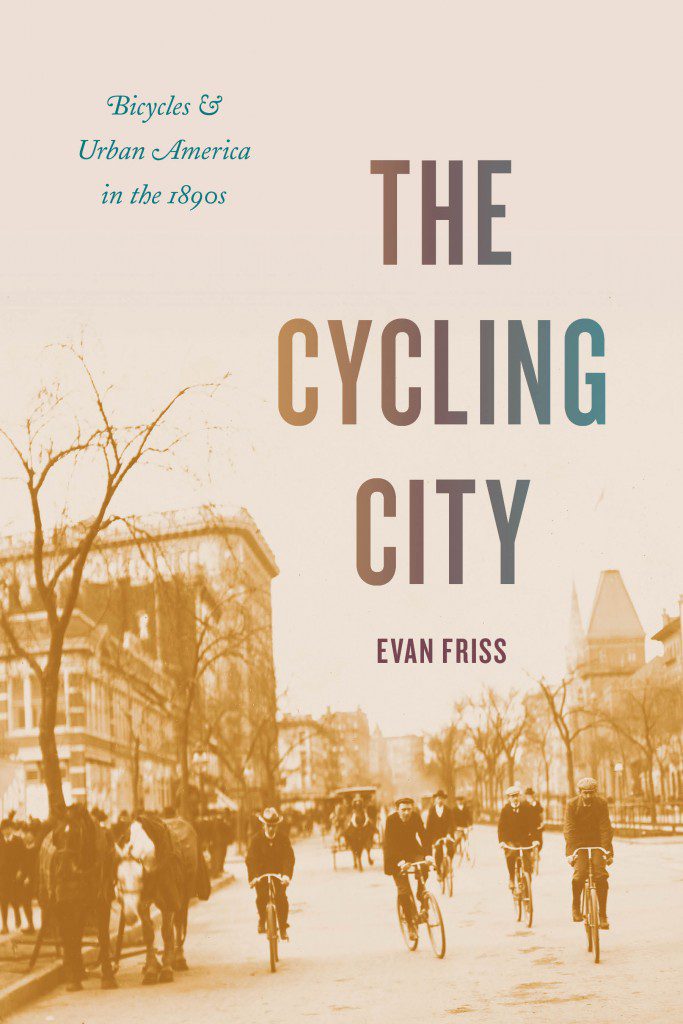
In the 1890s, American cities were home to more cyclists, more cycling infrastructure, more bicycle friendly legislation, and a richer cycling culture than anywhere else in the world. Evan Friss unearths the hidden history of the cycling city and argues that when the utopian vision of a cycling city faded by the turn of the century, its death paved the way for today’s car-centric cities—and ended the prospect of a true American cycling city ever being built.
“Friss has a good story to tell. In the late nineteenth century, bicycles were not just a sweet means of romantic transport–‘Daisy, Daisy, give me your answer do,’ and all that–but a technological triumph creating fanatical followers and interest groups. The bicycle was more like a personal computer than like a love seat…Friss is a demon researcher, and his book is full of revelatory facts…” Adam Gopnik, The New Yorker
“Evan Friss’s The Cycling City: Bicycles and Urban America in the 1890s deserves recognition as the definitive account of the 1890s bicycle ‘boom’ in the United States.” Winterthur Portfolio
“Urban and cultural historians will find much of interest in this fine study.” (Journal of American History)
“Friss offers a deeply researched, highly textured account of urban cycling in the 1890s.” (Reviews in American History)
“The Cycling City is aided by sharp prose, illustrations and graphs, and a well-researched narrative. By contextualizing cycling in environmental, urban, and cultural terms, the author makes a fine contribution to sports history and the history of cities, one that will appeal to scholars in various disciplines.” (Journal of Sport History)
“His interdisciplinary study makes welcome contributions to environmental, urban, and cycling history and draws our attention to the inextricable ties among all three, in modern as well as historical contexts…That journey is time is strengthened by the author’s depth of research that documents the remarkable extent to which the bicycle penetrated so many aspects of American society during that period…Friss’s study points in pioneering directions.” (Environmental History)